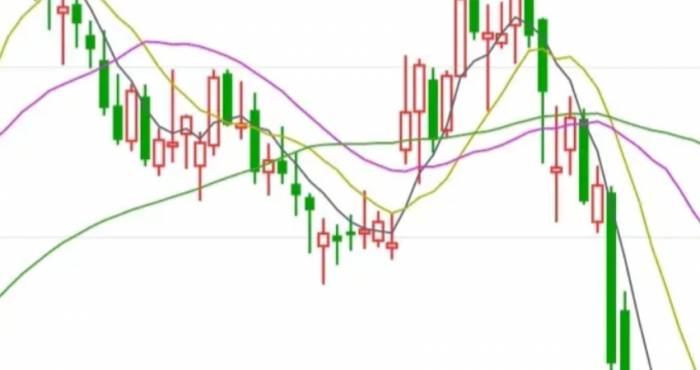First, the answer: Unreliable.
Many people believe that stock trading is very profitable. They also calculate in their minds that if they go to full-time stock trading, their capital will increase geometrically. The more they think about it, the happier they become, and they even fantasize that they can become billionaires in a few years. So they leave their jobs and start full-time stock trading.
Stock trading is a zero-sum game. There is a rule in the stock market that one person makes money, two are flat, and seven lose. Those who want to get rich by trading stocks always think that they will be the winner of 1/10, but the ideal is very full, and the reality is very thin.
There is a lot of knowledge in stock trading. With just a passion, you may win in the short term if you are lucky, but if you don't study seriously for a long time and act like a gambler, you will eventually lose badly.
Stocks have certain fluctuations and cycles, such as annual cycles, quarterly cycles, monthly cycles, weekly cycles, and daily cycles...
These cycles, large cycles contain small cycles, one ring contains another, and they are complex. The market manipulators rely on these dazzling changes to make retail investors have illusions and constantly deceive them to achieve the purpose of harvesting retail investors.
If you want to achieve results in stock trading, you must follow the market cycle changes, step on the rhythm, and accurately buy low and sell high. You must look at the big picture and do the small things, only when the big cycle is rising, you can grasp the fluctuations of the small cycle and make money steadily. When the big cycle is declining and the small cycle is rising, be very careful not to be deceived.
It's easy to say, but it's difficult to do. Many people get excited when they see the stock price rising, and they make a decisive decision to invest all their capital, not knowing that they only see the temporary rise of the small cycle, which is the manipulator deceiving people to let you take over the position and trap you. Apart from the manipulator, no one knows where the low point of the stock is? Maybe the stock you bought is just a halfway up the mountain, and you want to get rid of the decline and wait for the main rise wave to rise, I don't know when. Many people can't stand the loneliness and casually sell and change to new tickets, which is exactly what the manipulator likes. So repeatedly buying the wrong and selling, the funds will become less and less.
So I think, those who want to go full-time stock trading, should give up this idea as soon as possible, work hard, first of all, to live well, and when there is extra money, play in the stock market, feel the heartbeat can also.Add image annotations, no more than 140 characters (optional)
When choosing an industry to make a living and build a career, one naturally thinks about how to grow bigger rather than shrink. However, if you treat stock trading as a career, your assets will likely diminish over time. Clearly, making a living through stock trading is not feasible, so how can it be considered a career? Therefore, for retail investors, using idle funds to trade in small stocks in their spare time can be a good way to gain some knowledge, but relying on stocks as a lifelong career is likely to end up with nothing.
The Chinese stock market has not yet reached thirty years since its establishment, and there are probably not many people who have relied on stock trading for a lifetime. Most of the old investors have already exited the market. Moreover, the stock market has been characterized by short bull markets and long bear markets over the past few decades, with no cash dividends, and retail investors can only make money by speculating in the secondary market. Therefore, we believe that being a professional retail investor is "very foolish and naive."
Some may argue that they made a lot of money in the previous forced short squeeze. If I can accurately catch the stock market's waves each time, can't retail investors tend to become more professional? In fact, if you are in the US stock market, where the US stock market has been rising for 10 years, you can simply hand over your money to a fund management company and let the institution manage your wealth for you, and you will surely make a lot of money, without having to treat stock trading as a profession. In the A-share market, frequent trading and changing stocks are the biggest taboos for retail investors. Even if you succeed ten times, as long as you make a mistake once, you will wipe out all the previous floating profits.
Therefore, in the A-share market, there is no long-term slow bull market, and most listed companies do not have the habit of cash dividends for investors. If you are a professional retail investor, it is difficult to survive in the secondary market. Otherwise, why don't the past stock god Yang Baiwan and the current net red stock commentator Li Daxiao trade stocks in the secondary market themselves?
Yang Baiwan now makes money by teaching stock courses and publishing books. His son sells stock software. Li Daxiao attracts attention by shouting "more" every day. This is because those who have been through it know that it is too difficult to speculate in the secondary market of the stock market, and it is better to do some business and business related to the stock market. If any new investor wants to rely on the stock market for a lifetime, it is better to find a job and work hard, rather than wasting precious youth and time.
Of course, there are also people who rely on the stock market for a lifetime, but they are not retail investors, but investors with large funds. For example, the folk stock god Xu Xiang, he set up a private equity fund, traded stocks on behalf of customers, held billions or tens of billions in his hands, controlled several stocks, and used inside information and capital advantages to manipulate the stock prices of individual stocks. First, he laid out at the bottom, then released favorable news, and then quickly raised the stock index. Due to the profit effect, retail investors began to follow in large numbers, and Xu Xiang's private equity fund calmly exited after making a lot of money.
In addition, there are also long-term value investors like Buffett, who have selected a few stocks that are undervalued, held them for a long time, at least for several years, and then chose to leave when their value is fully explored by the market. Long-term value investors can indeed obtain astonishing returns. However, the problem is that value investors do not advocate short-term frequent speculation. Moreover, after value investors buy stocks, they go to do their own business, and there is no need to be a professional retail investor, nor is it necessary to mix in the stock market every day for a lifetime.
It is worth mentioning that there are also a group of people in the stock market who are engaged in PE, that is, they rush to take shares in the first half of the new stock listing, and when the new stock is listed, they can make a lot of money. When the lock-up period for the new stock expires, they can reduce their positions at a high level. Because these people have a very low holding cost in the secondary half of the market, they are also guaranteed to make money in the A-share market. However, they are not professional retail investors in the secondary market, but non-tradable shares.
Around the stock market, there are three types of people who can regard the stock market as a lifelong career, but only retail investors cannot:The first category includes internet celebrity stock commentators, securities firms, and institutional investors. They rely on stock market fluctuations to make a living, revolving around the stock market to earn their bread and butter. However, these individuals or institutions rarely have direct contact with the secondary market. If a well-known stock commentator were to trade stocks, they would surely suffer greater losses than ordinary investors.
The second category consists of those who invest in private equity funds. Wealthy individuals pool their money to establish a PE fund, which supports some enterprises in going public. If you invest in five companies planning to go public, and one or two of them successfully list on the A-share market, you could reap substantial profits. Therefore, these affluent individuals in China who gamble in the quasi-primary market can make a fortune as long as one or two enterprises they invest in successfully go public.
The third category is people like Xu Xiang. Xu Xiang and his peers own several private fund management companies. They specifically target small and medium-sized listed companies, spread rumors, fabricate various stories about the imminent rise in stock prices, and aggressively push up the stock index. As the individual stock indices rise, retail investors follow suit, and then the private funds exit at high levels, leaving the retail investors trapped at medium to long-term peak levels. For private fund operators with large capital like Xu Xiang, manipulating stock prices to make money is easy.
People who truly understand the stock market often have a sense of reverence for it and would never consider it as a profession, nor would they waste their precious youth on it. In the stock market, although stock commentators are generally bullish on the future, if trading stocks can make people rich, why don't they trade stocks themselves? Yang Baiwan was one of the first batch of investors in China. Why has he quit and started giving lectures or writing books? What's even more surprising is that Yang Baiwan also let his son buy stock trading software. Isn't it better to trade stocks directly? People who understand the stock market never base their careers on the secondary market; they only earn money related to the stock market on the periphery.
The most important thing is that you cannot guarantee that you will always win.
Finally,
Some advice for fellow investors:
1. Learn, learn, and learn again
No matter what job you do, you must master the relevant professional knowledge. In terms of stock trading, numerous professional books and learning materials can be helpful for trading operations.2. It is essential to learn to think independently
In the early stages of trading, it is easy to blindly trust other people's theories. Perhaps it is because one is not confident enough in their own abilities, so whenever they hear the analysis and theories of so-called experts and masters, they tend to accept them easily. In fact, this is not a good approach. Everyone has a different trading style, so one must learn to have their own independent way of thinking and trading methods. If one follows the opinions of every expert, they will often end up achieving nothing.
3. Trading must be learned from practical experience
"The knowledge gained from books is always superficial, one must practice to truly understand." Some people like to read a lot of books and study many theories, but they are just armchair strategists. Once they enter the actual battlefield, they are at a loss.
4. Patience is required in trading
Patience, as well as discipline, is essential. When a truly good opportunity arises, take decisive action instead of acting rashly without proper consideration. Discipline is the most important principle for a trader. One should know when to buy and when to sell, and how to control their risks once there is a deviation. If one buys correctly, they should also maintain discipline and not be greedy for small profits, selling a good stock too early. This is a relatively difficult issue to control. However, as practical experience continues to grow, traders will continuously improve their discipline.
5. When starting to learn trading, do not be eager for quick success, start with small-scale trading
A common mistake many people make is that they start with too large a number of initial transactions. When they first start trading stocks, they may make a profit for many consecutive days, and then they become overly eager and feel that they should take advantage of the situation to expand their trading volume and earn more money. They jump from trading 300 or 500 shares per transaction to 2000 shares per transaction. In fact, such a decision is very risky, and trading performance may decline quickly. Every trader's trading level cannot always be stable at one level. Sometimes it will be better, and sometimes it will be worse. When we are in the initial learning stage, we should understand that the trading level will fluctuate greatly. Increasing the transaction volume all at once will only add extra psychological burden to oneself, and sooner or later, one will fall.
6. Follow the general trend of the stock market
Do not go against the stock market. If the stock market is rising, we buy; if it is falling, we sell. This is actually a very simple principle, but many people like to predict when the stock market will reach its peak and when it will hit the bottom. In fact, this is very dangerous. If someone could always correctly predict when the stock market is going to turn, then they would have made a fortune long ago. In reality, no one has such power. For most traders, trading stocks is a bit like sailing in a big river. If you go with the flow, you will be more successful, and you can break through the waves without much effort. But if you go against the current, you will have to exert all your strength, and if you are not careful, you may even capsize.7. Learn to Control Emotional Fluctuations
Facing the unpredictable stock market, maintaining a calm mind and stable emotions is extremely important. In the fierce competition of the stock market, traders have to make many transactions every day, some of which are profitable and some are not, as winning and losing are common occurrences in the battlefield. However, how to control one's emotions and maintain a calm and stable mood and a clear mind is crucial for every trader and is also difficult to achieve. But there are also some traders whose emotions are always very calm, and it is impossible to tell from the surface whether they are making a profit or a loss, as if nothing has happened, even if they make a big profit or a big loss, they can always control their emotions. Therefore, we must not give up our efforts. Only by persevering, believing in ourselves, and working harder when things are not going well, can we become the ones who laugh last.
Remember, as long as the green mountains are there, there will be firewood to burn.
Do not bet everything.





























